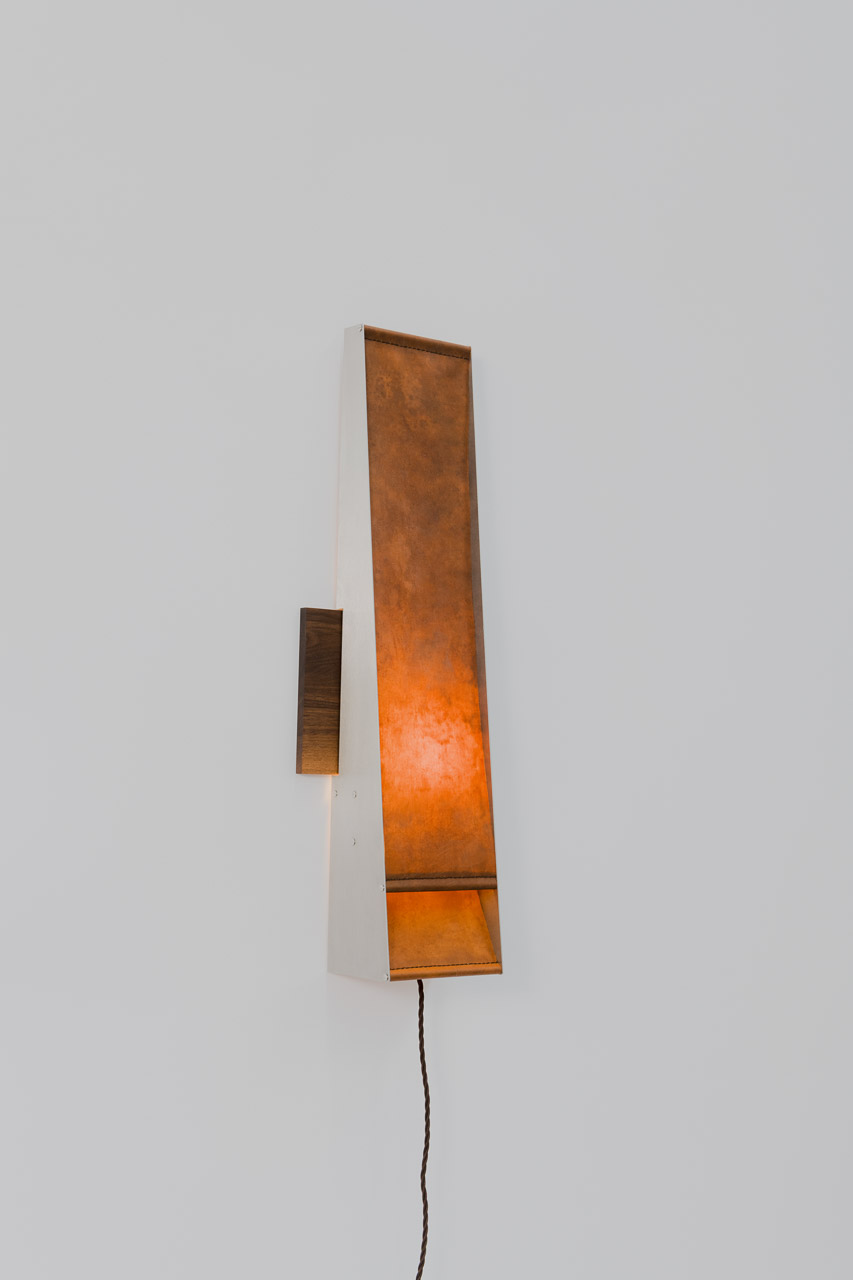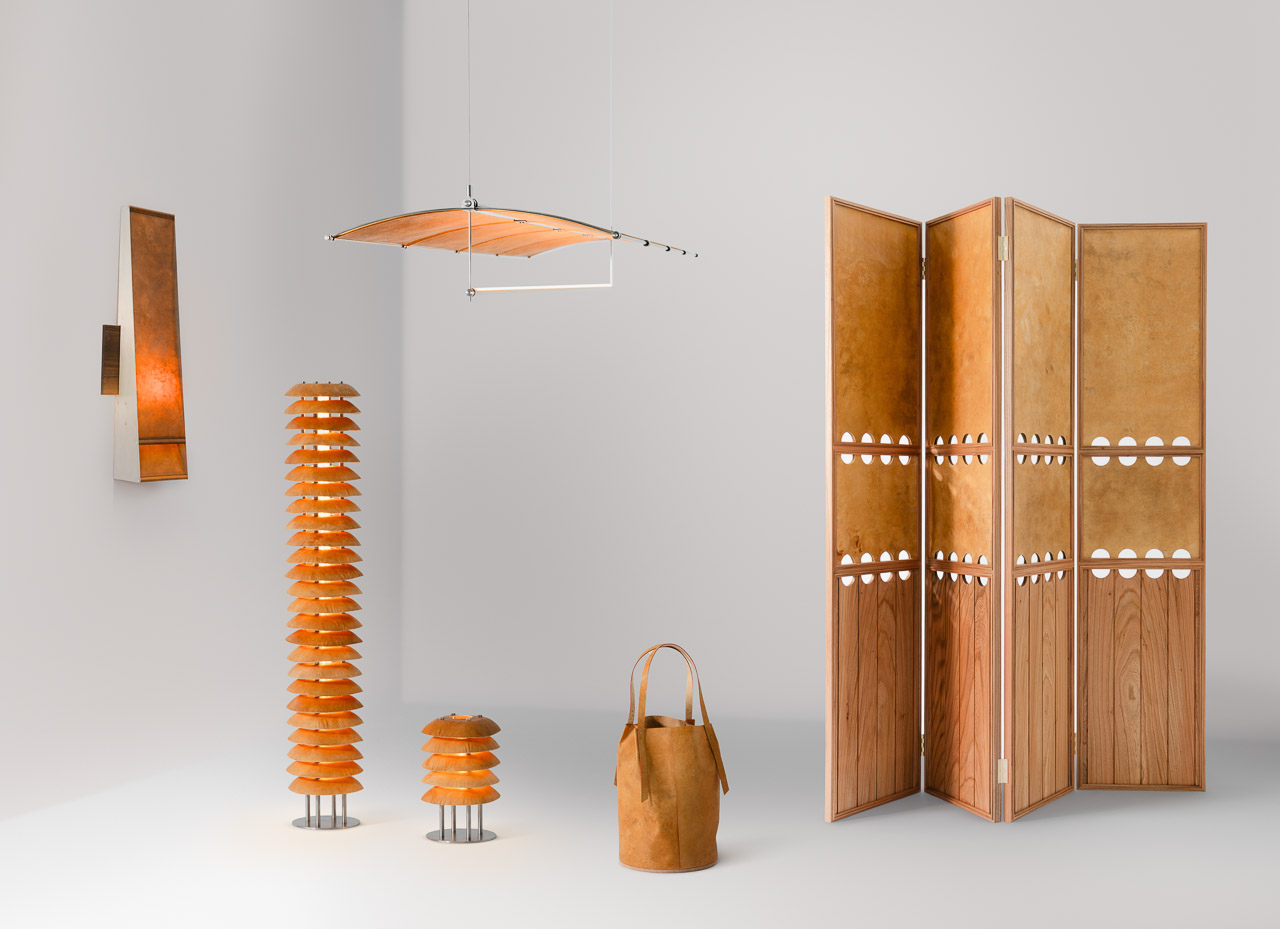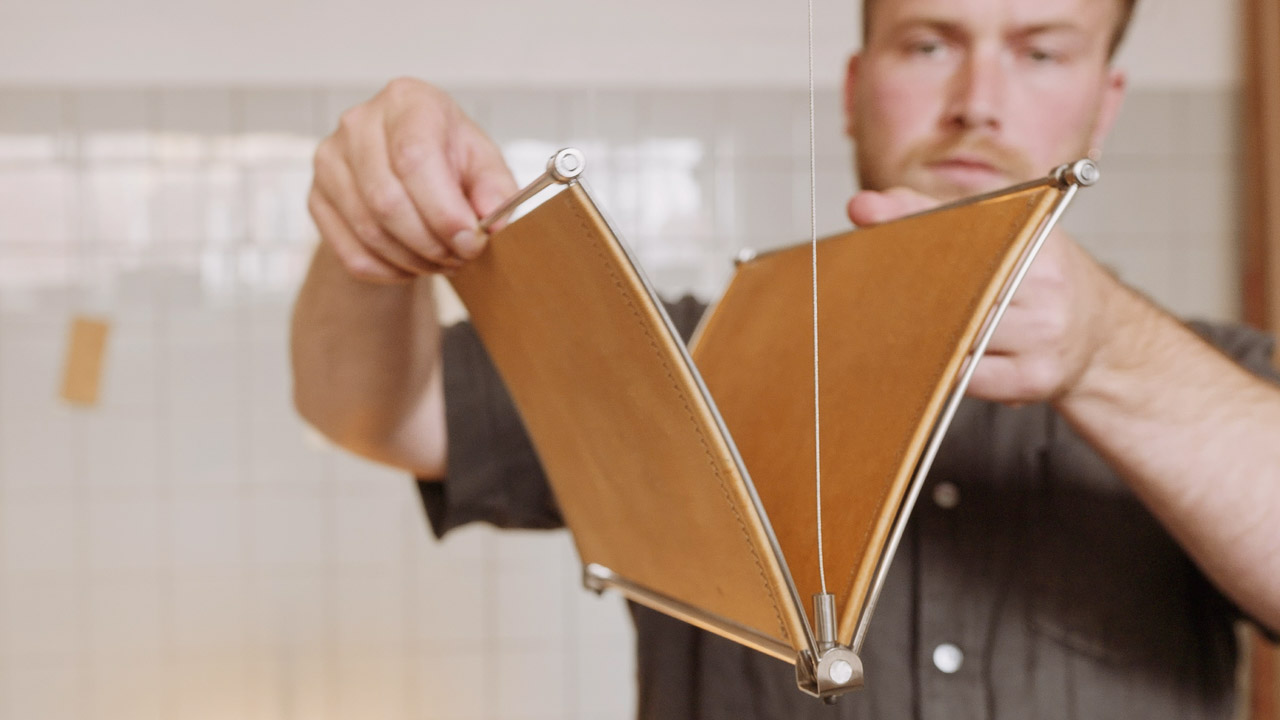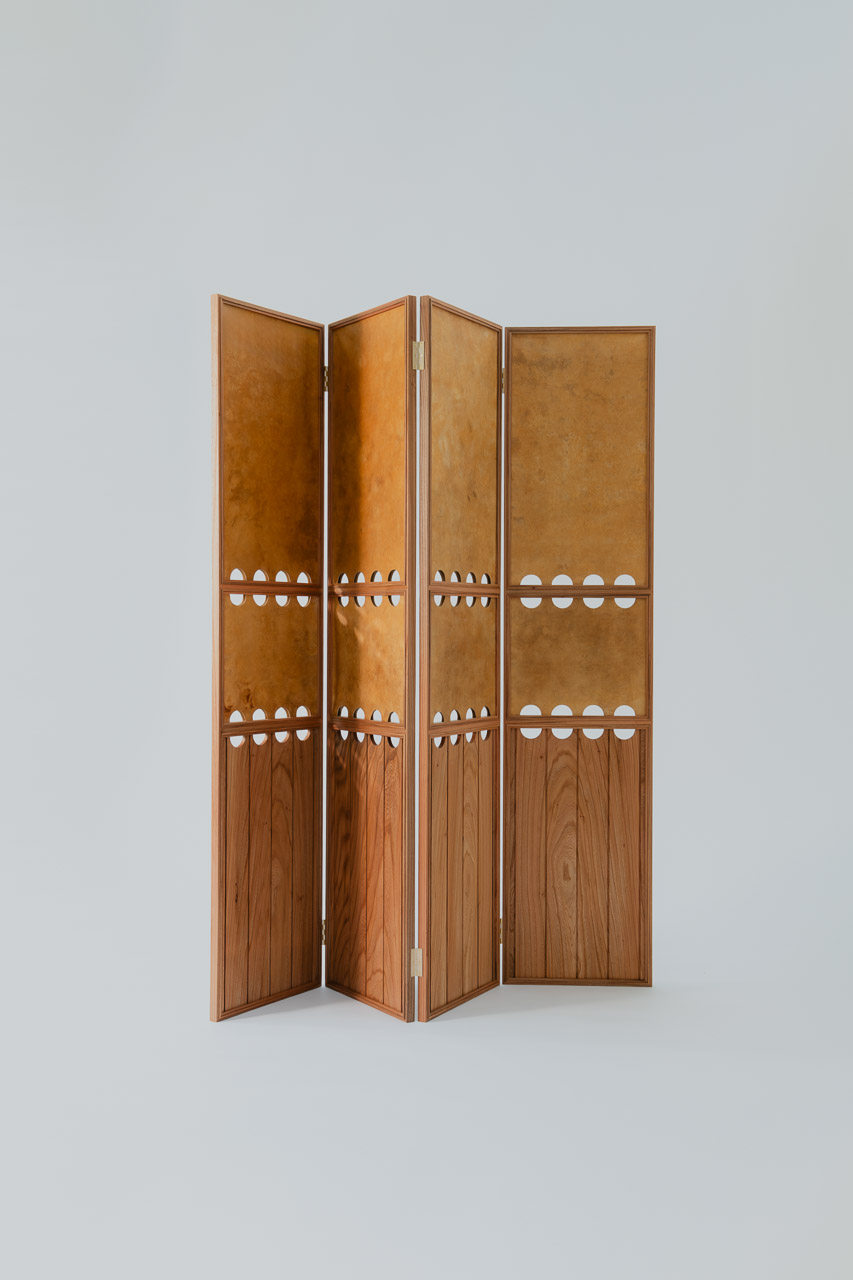
The convergence of biotechnology and design craftsmanship took on a new dimension at Copenhagen’s 3 Days of Design 2025, where MycoWorks’ innovative biomaterial, Reishi, was presented in an exhibition that redefined the boundaries of sustainable luxury. The event, titled Reishi in the Nordic Light, marked a pivotal moment in material innovation by highlighting how mycelium-based leather can seamlessly merge with the aesthetic, philosophical, and functional aspirations of contemporary design. Know more about it on SURFACES REPORTER (SR).

It was recently introduced in a Ligne Roset sofa and incorporated into the inner door panels of a Cadillac electric concept car by General Motors.
From biotechnology to luxury
Curated by Marie-Louise Hostbo at Galerie MollerWitt, the exhibition invited five of Denmark’s most acclaimed design studios to explore the unique qualities of Reishi. The curatorial focus on light, an essential aspect of Nordic design tradition, allowed the designers to test how the material interacts with both natural and artificial illumination. The results underscored Reishi’s ability not only to serve as a responsible alternative to conventional leathers but also to inspire fresh creative directions.

This process yields a material that mirrors the tactile richness and visual sophistication of animal leather while meeting demanding benchmarks for flexibility, durability, colourfastness and aging.
This introduction of Reishi came at a critical time. With growing awareness of the environmental costs of animal-derived and synthetic leathers, the design industry is searching for authentic, sustainable solutions. Reishi, produced using MycoWorks’ patented Fine Mycelium technology, stands out as one of the most promising. This process yields a material that mirrors the tactile richness and visual sophistication of animal leather while meeting demanding benchmarks for flexibility, durability, colourfastness and aging. Importantly, its production results in a significantly lower carbon footprint, which is just 6 pounds of CO2 equivalent for every 11sqft, far below that of traditional leather options.

The results underscored Reishi’s ability not only to serve as a responsible alternative to conventional leathers but also to inspire fresh creative directions.
The future of leather design
The material has already achieved strong commercial traction. It was recently introduced in a Ligne Roset sofa and incorporated into the inner door panels of a Cadillac electric concept car by General Motors. MycoWorks has also scaled its operations with a 136,000sqft facility in Union, South Carolina, employing artificial intelligence and robotics to streamline production. Once produced, the material is shipped to Igualada, Spain, for tanning, ensuring both industrial efficiency and artisanal refinement.

Reishi, produced using MycoWorks’ patented Fine Mycelium technology, stands out as one of the most promising.
Beyond the artistry, the event also mirrored broader market trends. The mycelium leather industry, valued at $12 million in 2024, is projected to grow to $336 million by 2033, reflecting its potential as a serious player in the wider $720 billion global leather goods market. By positioning Reishi within the Nordic design tradition, the exhibition demonstrated how sustainable materials are no longer just experiments but viable options for mainstream luxury applications.
Image credit: Marie-Louise Hostbo